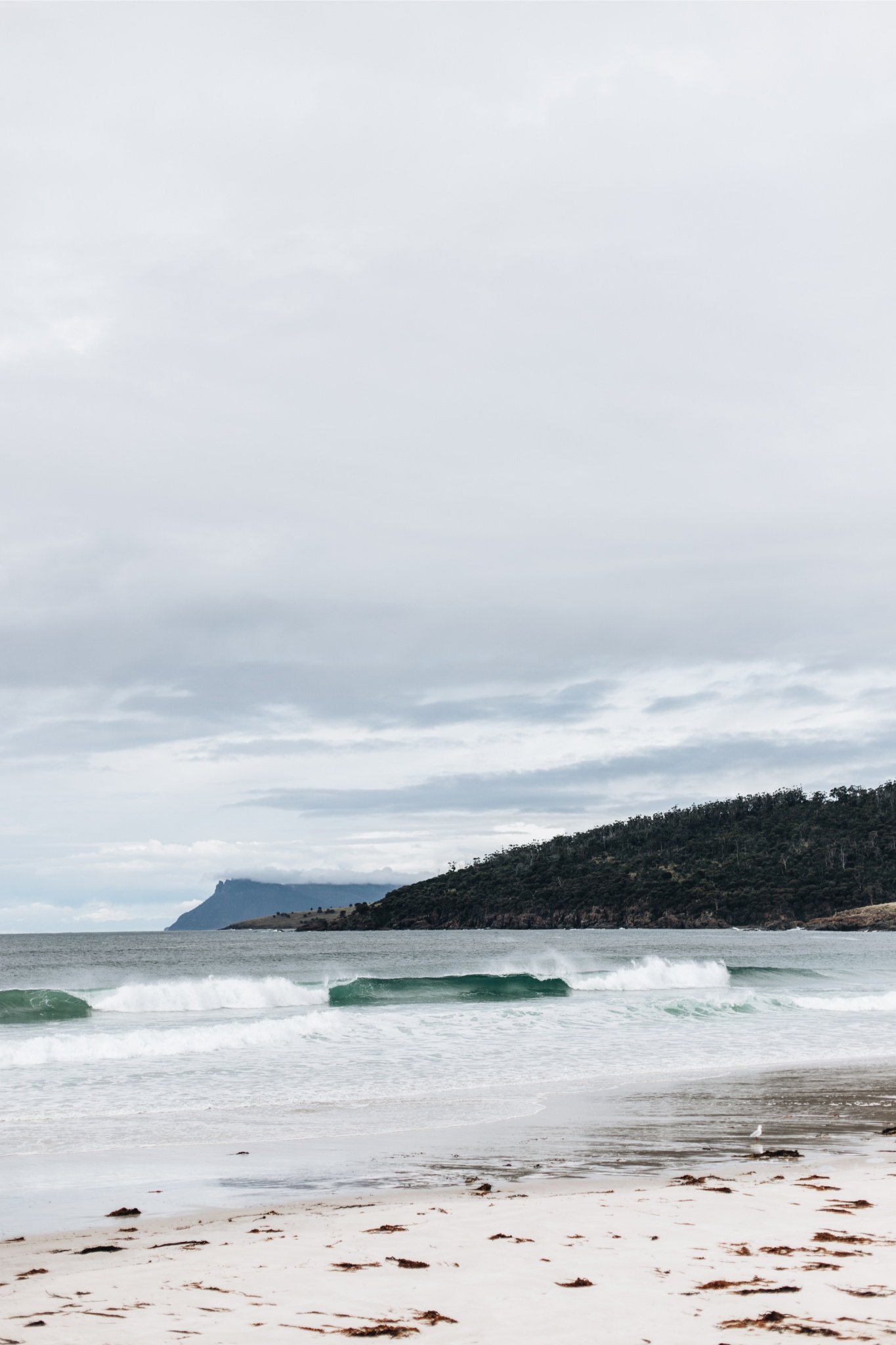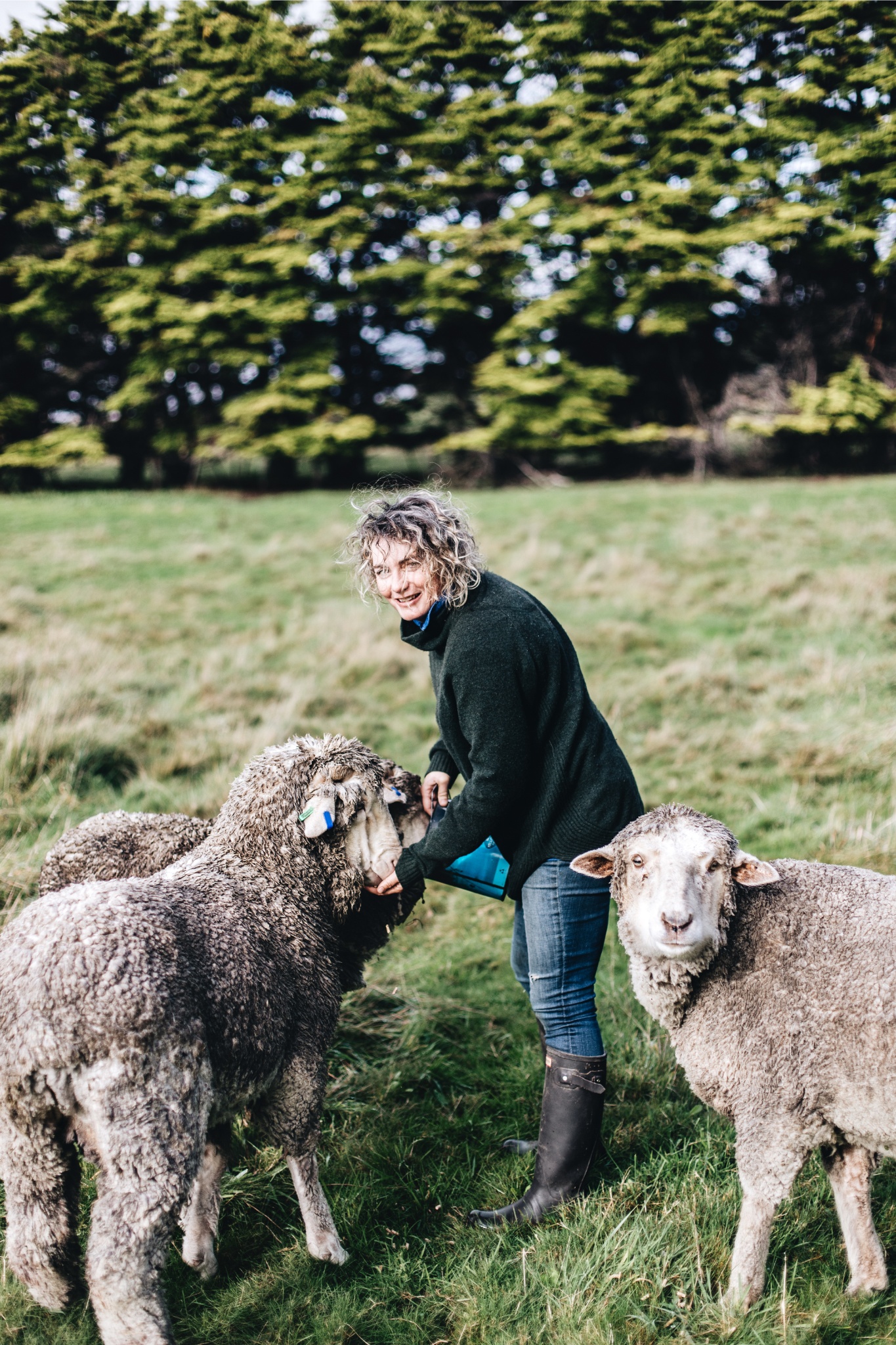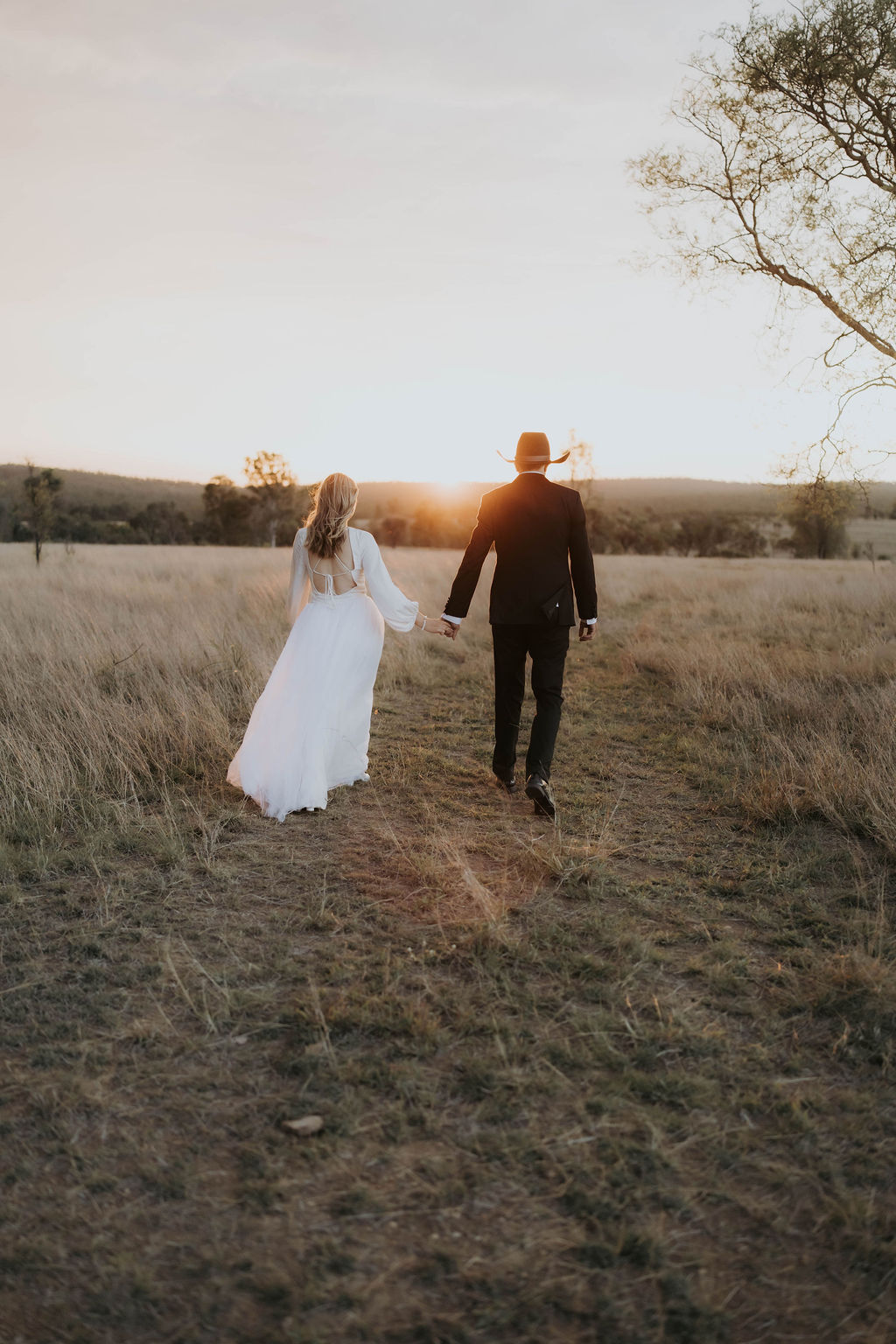Maggie MacKellar lives on the coast of Tasmania with her partner and two children.
PHOTOGRAPHY FRED AND HANNAH
Sign up to our mailing list for the best stories delivered to your inbox.
As the warmer weather approaches, the Tasmanian writer and farmer once again finds herself being held by the sea.
WORDS MAGGIE MACKELLAR PHOTOGRAPHY ABBIE MELLE
She has grey hair around her eyes, her back is swayed and her hip bones sharp, yet the dapples on her coat are starting to come through and I can still admire her lovely swinging trot as she comes to the gate to snooze under the trees on the other side of the fence.
I wish I could wile away the day in the shade. We’re busier than normal because this year we moved our lambing back in order to squeeze in a long-planned road trip to the Kimberley. The trip was wonderful and totally worth the slight chaos of a late lambing, but we’ve been playing catch-up ever since. Instead of heading into November with all the lambs marked and back in their paddocks, we’re juggling two big jobs: marking lambs and shearing wethers. I’m feeling a certain crushing rush as the end of the year looms. In the days to come I’ll be cooking for shearers, helping bring mobs in and then quietly tail them back to their paddocks. When we get busy like this I find it hard to keep my routine of walking and swimming, and yet that’s exactly what I need to do most.
I’ve always been a swimmer, always loved the water and the way it so instantly transports you to another place. In my other life, when I worked at a university in the city, I would swim every lunch time and often solutions to the problems I was trying to solve in my writing would reveal themselves in the discipline of following the black line up and down the pool.
When I moved to Tasmania I couldn’t believe the luxury of living on a farm so close to the beach. I would walk on the beach and delight in the ever-changing light, the water shimmering aqua blue and green, the sand so fine and white, but I held back from swimming. I would swim at the height of summer but the water was still so cold I found myself affronted, almost cross I couldn’t just loll around like I used to in the warm waters off the New South Wales coast. Down here I’d watch the dogs plunge in and charge back out; they’d pause and shake the water from their coats and then run on. I was jealous of them not thinking of bathers or towels. In the end it was watching their delight that finally made me strip off and plunge in. I learned if I ran to the end of the beach, swam and then pulled my clothes on over my dripping skin, I would be warm and dry by the time I was back to where I’d left the ute. No need for wet bathers, a sandy towel. Just a simple plunge.
But this season, after our stint in the warm waters of Western Australia, I’ve struggled to get back into my routine. I need it though: a pause, a reset. So I tie the dogs up on the back of the ute and head down to the beach.
The water, even though we are on the cusp of summer, is so cold it’s like the kick of a colt, violent and unexpected. I’m knocked over, breathless and shocked. I stroke out beyond the breakers, afraid for a moment that my body won’t remember how to swim, to soften to the cold, to stop fighting it and accept. I flip over onto my back and float. The clouds bunch and break and sunlight falls over the sea, changing the blue to aqua green.
I’m carefully watched by a small row of spectators: two Corgis like golden sentinels and the black blob of my Labrador. They are a study in attitudes. One Corgi is anxious; he struts and strains against the edge of the sea and he’ll venture out until a wave sweeps his feet from the sand and he turns, bedraggled, to the shore to pace again. The other Corgi lies with her head on her paws, a picture of resigned patience. Dusty the Lab stands, watching and wagging her tail.


But there’s something about swimming: about stripping to nothing or next to nothing and revelling in the sensation of being held by the sea.
Dusty used to swim with me. She’d out paddle through the breakers, not worried if they dumped her, and beyond them she’d swim beside me, or around me if I lay on my back and floated. Her strokes were powerful and, with her mouth half open letting the salt water spill through, she’d make a joyous chomping sound as if she couldn’t get enough. Now she’s old and though she’ll take a dip in every water trough we pass, do a gentle lap of the deeper holes in the creek or have a morning plunge in the dam, she won’t charge through the breakers anymore. I think on this, her acceptance of aging. She still gambols like a puppy, her movements stiff and a little awkward, but joy sings from her eye to her tail. I remember the athleticism of her youth, her speed and stamina as she ran for kilometres effortlessly keeping up with horse or bike or ute. And now, just like that — or so it seems — she’s old.
But I’m older too. I stroke back to the beach, feel the weakness in my arms, the roll of middle-aged fat around my belly and shoulders. I wonder at the layers age adds to us — the extra flesh, the excess of skin, the smile and frown lines — and at how hard I sometimes find it to accept this new body. It feels a long way from the body who could jump on a horse bareback and charge off without a plan, or who would swim up the length of a beach or climb a mountain. But there’s something about swimming: about stripping to nothing or next to nothing and revelling in the sensation of being held by the sea, made weightless, light, that returns me to myself. My grandmother was a swimmer and towards the end of her life all she wanted was to swim in the ocean again. We took her down to a sheltered bay on a sparkling summer day. It was a day of contrasts, her painful progress across the sand, the delight on her face as she sank into the sea. And a sadness because she knew, and so did we, that this would be her last swim.
I walk back up the beach with the dogs. James rushes ahead and Ethel and Dusty trudge behind me. The pile-up of jobs are still waiting for me, but the sea has given its gift to me again. I take home a sense of renewal, a reclamation and an acceptance that this body, the one I am in right now, is just perfect.
To hear more stories about Maggie’s life on the farm, listen to our podcast The Farm Diaries on Apple podcasts, Spotify, and all major podcast platforms.
Subscribe to Graziher and never miss an issue of your favourite magazine! Already a subscriber? You can gift a subscription to someone special in your life.
To hear more extraordinary stories about women living in rural and regional Australia, listen to our podcast Life on the Land on Apple Podcasts, Spotify and all major podcast platforms.

What began as a postcard-perfect country wedding soon became a story of survival, strength, and the unshakable heart of rural Australia.

Current custodian Penny Lamont says the heritage garden is designed for easy-care and dry times.